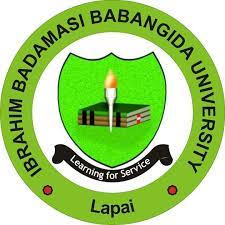Geography

A degree with global relevance
Geographers study some of the biggest challenges facing our planet, from food security, climate and biodiversity emergencies to pandemics and globalisation, and social inequalities and urbanisation to volcanoes and melting ice sheets. Our Geography course tackles these issues. You do not have to choose whether to specialise in physical or human geography as you can do both in all three years.
Facilities and resources
Our library, at the heart of the Department, contains around 20,000 books, journals and periodicals, and is also a fantastic study space. You will also work in our computer suite and physical geography labs, with some teaching taking place at the Scott Polar Research Institute, another integral part of the Department.
Fieldwork and travel
We are committed to fieldwork, a fundamental part of the course, providing an enjoyable way to develop research skills. There are one-day excursions each year, depending on your choice of papers and a compulsory field class of five to eight days in either September at the start of the second year, or in the second year Easter vacation. Recent locations include destinations in both mainland Europe and the British Isles and we are aiming to reduce the carbon footprint of these trips. Students are required to contribute to the cost of residential field trips, but the costs are very substantially subsidised, and financial help is available for eligible students.
Course outline
The degree allows you to study both human and physical geography, although you can choose to specialise in one of these areas from the second year.
You typically have six to eight lectures each week (with associated reading), as well as practicals, laboratory work and field classes. In addition, you normally have three supervisions a fortnight at which you discuss a topic beyond the material given at lectures, usually based on reading, essay writing, preparation of presentations or answering data response questions.
Year 1 (Part IA)
You’re introduced to key themes and issues by studying two core papers, which have recently been:
- People, Place and the Politics of Difference – topics are varied, but may include globalisation; cultural geography; sustainable development; historical geography; urbanisation; geopolitics; uneven economies and inequality; health and disease
- Environmental Processes and Change – topics are varied but may include tectonics and volcanism; glacial processes; Quaternary climate change; biogeography; atmosphere and climate
For each paper, you are assessed at the end of the year.
You will also attend a range of lectures and lab classes (both physical and computer-based) introducing you to geographical research skills across the subject. These are assessed by means of coursework.
Year 2 (Part IB)
All students take a compulsory paper, Living with Global Change, which examines key concepts and current issues in geography, usually based around the theme of geographical risk (the exact focus varies from year to year).
In addition, you can begin to specialise and select three papers from a choice of six. The list below give examples of the choice that may be offered, but these can change from year to year:
- Inequality
- Development Theories, Policies and Practices
- Citizenship, Cities and Civil Society
- Glacial Processes
- Biogeography
- Quaternary Climates and Environments
You will also undertake project work involving field, lab and computer skills and techniques. Projects vary according to which you papers you choose, but everyone takes a course in quantitative methods.
You will also take part in a field class (five to eight days); these trips usually include a mix of different types of geography and help you to develop knowledge and skills for your dissertation.
Assessment in the second year is based on a mix of written examinations for the four papers, and submission of a portfolio of coursework.
Year 3 (Part II)
You can choose either to specialise further or maintain a balance across the subject as a whole. You select four papers from a choice of 12. Papers on offer vary each year but recent examples include:
- Global Urbanism
- Work and Employment
- Political Ecology
- Biogeography
- Glaciology
- Postcolonialism and Decoloniality
- Geographies of the Arctic
- Environmental Knowledges
- Volcanology
- Legal Geographies
- Geographies of Food and Power
- Demographic Continuity and Change
- Life within Limits
These papers are assessed by either written examination or a combination of written examination and coursework, which typically takes the form of a project or extended essay, academic report or poster presentation.
You also submit a dissertation of 10,000 words on a topic of your choice. Planning for this starts in the second year. Data are usually collected in the summer between your second and third years, with analysis during the third year.
Subject requirements
Required: No specific subjects required by all Colleges
Some Colleges require: A Level/IB Higher Level Geography
Useful preparation: Geography
Learning for service.
Our focus is on students.
